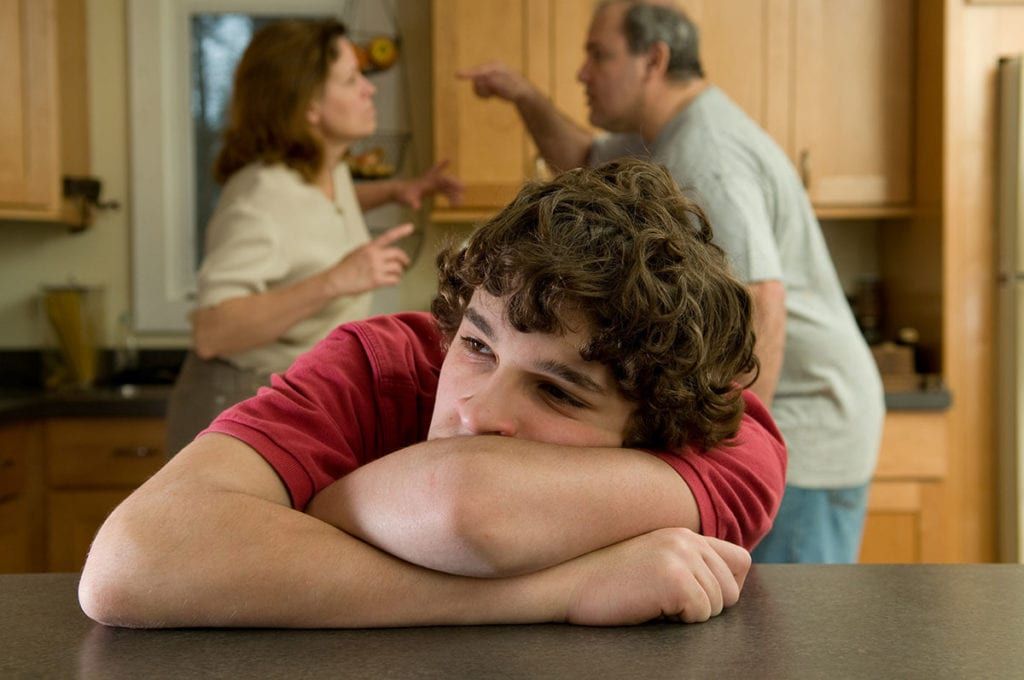
A first-time parent looks at their child, starry-eyed and full of love with many preconceived thoughts of what their life will be in the future. At the many crossroads of life, with each milestone passing, concerns over whether the child has friends or if the friends share their family’s values; will the child experiment with substance use; or how does social media affect my child?
This past year, I have witnessed myself and spoken to other parents whose children have experienced depression. In talking with parents, warning signs were visible, and advice was given to try and avoid the catastophe that soon was coming. As parents, you never want to see your kid in pain, but sometimes that is inevitable.
From personal experience, when depression took hold, it appeared an entirely different person was living under our roof. In this place of darkness that saw little light, decisions were made that didn't seem in line prior to this depression. And at the time, my child saw pain and no way out. From a parental standpoint, this was difficult – you want to fix problems immediately and know everything will be fine. Unfortunately, depression does not work that way. Just as the symptoms developed over time, the solution takes time as well.
The conversations I have had with other parents seem to follow a pattern:
- A change in thinking; eating habits; sleep patterns
- A change in a relationship (a breakup or friend moving away)
- Not being able to express their feelings
- Overwhelmed with work, school and extracurricular activities that do not go as perceived
Some of the behavioral changes I noticed were low energy, overly critical of oneself, sensitive to criticism, difficulty making decisions, changes in appetite and complaining of headaches and stomachaches.
The hardest part as a parent is giving space, grace and patience to allow the healing process to begin. While your child needs to be patient with themselves, it is equally important as a parent to be supportive, understanding, encouraging and empathetic. For parents, nagging your child is only going to agitate your child and make the situation more challenging.

If you are a parent or caregiver, here are a few tips C&A’s Trauma Specialist Mary Kreitz put together to provide guidance to help a struggling teen:
- Talk about what they are experiencing. Let them know it is safe to express their thoughts and feelings, even the ones that are not so comfortable to hear
- Express - it can be hard to put feelings into words. There are lots of ways to express yourself – art, music, dance, photography, etc.
- Listen – you don’t have to have all the answers or know how to fix every problem. Just listen without judging and empathize with the struggle
- Gratitude – every day identify three things to be grateful for, three things that were achieved or three good things that happened
- Counter negative feelings of self by saying how proud you are of them. Notice the positive things they do and let them know they are doing a good job
- Plan something enjoyable for the day. Plan something to look forward to in the near future and in the longer turn.
- Routine – make sure they get out of bed and dressed every day. Eat regular meals.
- Accept – it’s never helpful to make light of a teen’s depression by saying they are being dramatic or feeling sorry for themselves. Depression does not feel good.

What can a parent do?
When your child is struggling, it often takes a toll on the entire family. Spouses and caregivers need to step back and be patient with each other while figuring out the best course of action to resolve the problem, which may include looking into therapy.
The first steps a family can take to work towards treating depression is recognizing your child is depressed and the second is seeking help.
These coping strategies may help until a more permanent solution is in place:
- Keeping your child in touch with family and friends. Try to prevent withdrawing from life
- Be active. Try to involve your child in some form of exercise, perhaps an activity you can do together
- Help your child face their fears. Don’t let them avoid the things they find difficult
- Avoid use of substances. Talk to your child about this and how this will make the situation worse instead of better
- Try to help them eat healthier foods
- Keep a consistent routine
As I have witnessed and discussed with friends having been through this situation, there will be challenges ahead. Some of the changes are the parent’s perceptions and holding back your opinions and truly providing a listening ear. As your child continues to grow, your role continues to change from parent telling your child what to do and how to think into a parent who is listening, asking the child how they would like to handle the situation and listening to what they are saying as a key to the solution. Oftentimes, difficult transitions occur in a time of crisis.
From personal experience, with time and patience, the recovery process will take place and you will see your child change back into the person they were before depression took hold. The key to your child’s long-term sustainability is recognizing the signs in advance and using the strategies the child learned to avoid a bout of long-term depression.
Dan Mucci is the author of this blog post. Mucci, C&A’s marketing coordinator for the past four years, has more than 20 years of writing experience. To learn more about the services the agency offers, visit
www.childandadolescent.org , call 330.433.6075 or email
dmucci@childandadolescent.org.
RECENT POSTS












